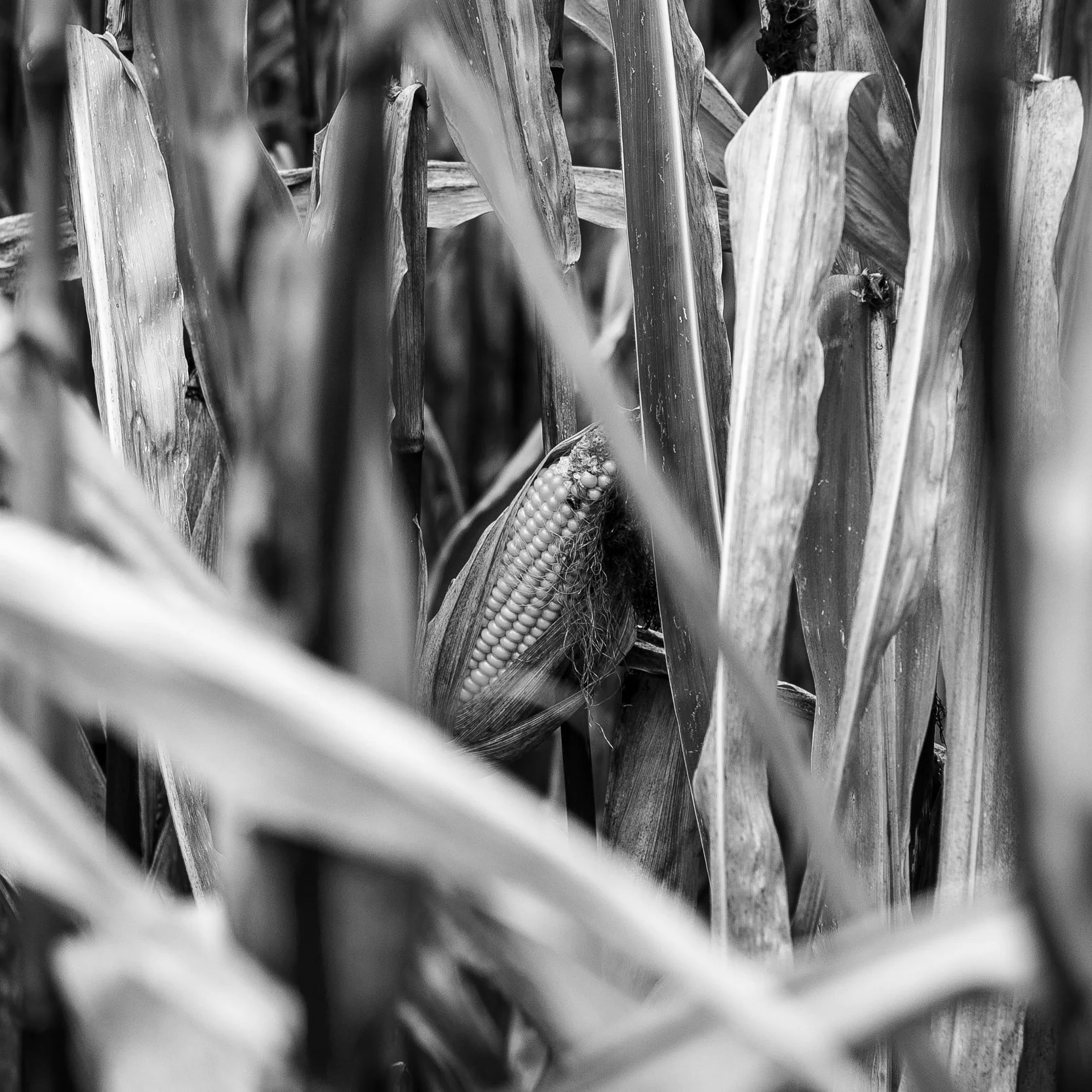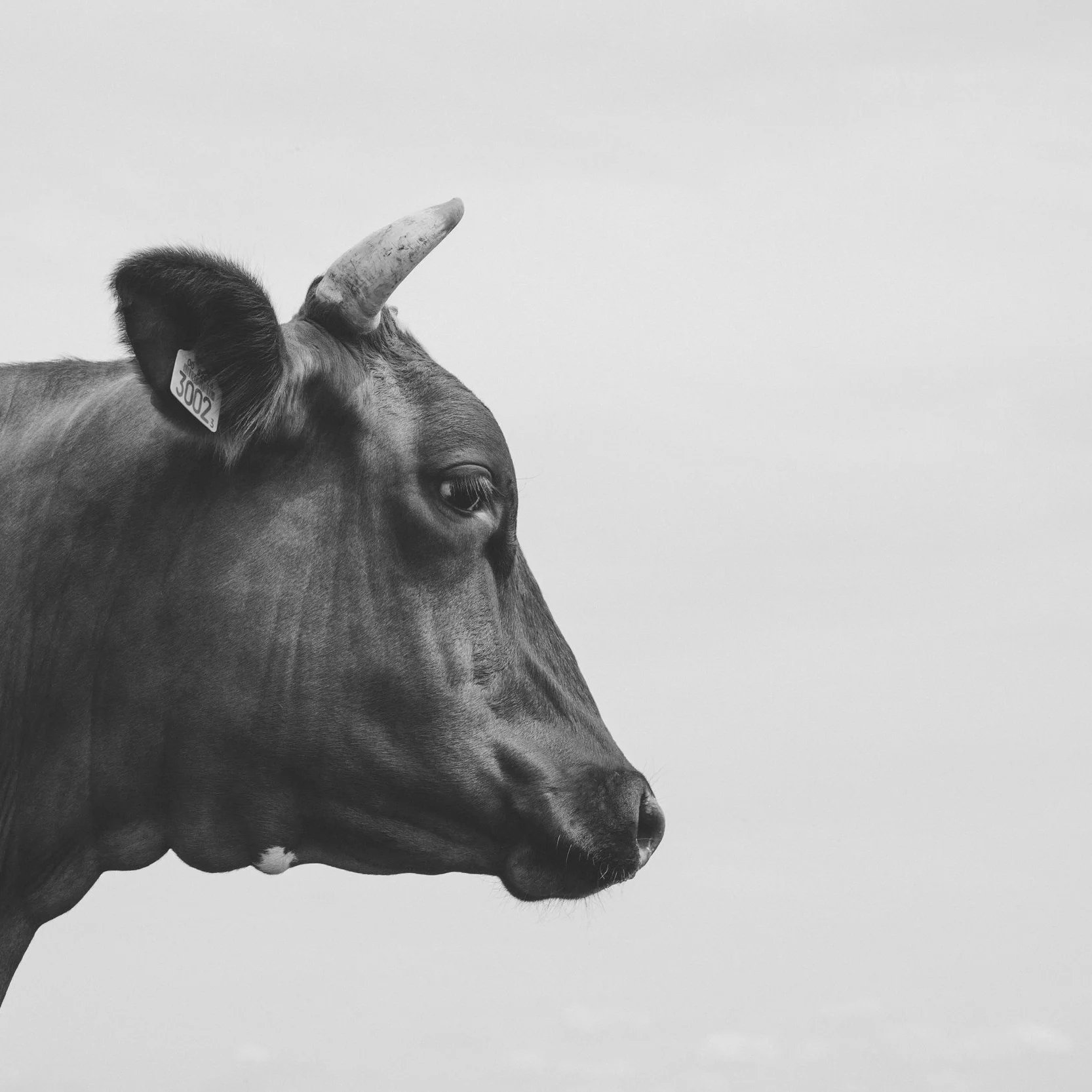EXT. FIELD, DAY
SOUND: The open countryside. Crows cawing in the distance. Wind blowing lazily through corn fields.
JIMMY
Well, sir, I ain’t thought much ‘bout goin’ home, truth be told. Momma been ill going on fifteen years, but that ain’t stopped me ‘til now.
Daisy keeps finding where I’m at, sending messages to poor folks on the road, you know? She been pestering me since she came out my Momma hollerin’ and yellin’ something dreadful. Ain’t never stopped hollerin’ at me, seems like. You think about that, huh? Think ‘bout someone yellin’ at you “Think of your poor old Pop, Jimmy. What about Momma, Jimmy?” for damn near fifty years. It’d drive any fool to distraction. And so y’all understand I couldn’t just be sittin’ ‘round that house listenin’ to Daisy have her way about her. It ain’t like she had no gentlemen calling on her to take her out the house. She was always there, loiterin’.
So when I was old enough to be workin’ out, I didn’t even think, I walked out that door down in Tallahassee and I ain’t stopped walkin’ since. Went Tallahassee to Atlanta workin’ corn fields along the way, testing my strength. You gotta understand it was a long time gone now and I was a weedy thing, you know? I looked like I ain’t saw the sun much and I weren’t planted in no fertilizer.
What’d happen was I rock up on your farm and I ask you “How many bushels do y’all normally haul in a day?” and you tell me and I say “Alright. Y’all need help today?” and you might say yes, might say no, but I’ll stick around and pull some corn. Next day comes ‘round and I been sleeping in your barn or something and I gets up and walks on by to another farm further north. Always going north aiming for God above knows where. Got to Atlanta and spent some time in the city there. That was the first time Daisy managed to get a hold of me, told me she was getting married to Bobby May that spring and wouldn’t I like to come down for the wedding. I knew Bobby when we was boys together on the baseball team: Bobby’s a bit time hitter, coulda made the big league if it weren’t for the color of his skin. Not that I got a problem with it, but you know how it was in them days. So she sent a letter to some lodge I was stayin’ at in Atlanta tellin’ me “come home for the wedding, Jimmy. Mom and Pop miss ya Jim.” I didn’t go. I didn’t have a car or no money to get down there and by the time I coulda turned around and walked back I’d’a missed the dang service.
Please don’t take that as some comment on my approval of the match between my Daisy and Bobby May. I’m sure they make a wonderful couple, but I was in a bad place in Atlanta at the time, you know? I decided then and there that the cities weren’t made for me, and since I been keeping to the fields pickin’ corn and the like. I been all around over the years, up as far as Illinois and back down South again; over from the Carolinas to Arizona. Actually it were in Arizona I got a letter from Daisy tellin’ me about her kid: she had a son, you know? Called him Tommy, well Thomas, Thomas May. She wanted me there for the baptism, give my blessin’ to the child and so on. Went on for pages this letter she sent to some poor farmer in Arizona. I never really took much to farming in Arizona. I’d turn up at a place over there and ask “How many bushels?” and their answer’d always be so much lower than the folks back East. By this time I’d been picking corn years and I reckon I’d got quite good at it so it was just a little... I don’t know what, I guess it weren’t a challenge there. But I couldn’t get from some backwater in Arizona to Tallahassee in the time Daisy said, so I guess I never did see Tommy’s baptism. I guess God saw to it though, that boy is sharp as a sickle from what I hear. Could go out of state for College and be some fancy lawyer up North.
Well the years they been passin’ by mostly like that, me wanderin’ and pickin’ up work, Daisy sending me reels of paper keepin’ the loggin’ industry afloat singlehanded like, Tommy growin’ up and my folks growin’ old. But now here I am with the shortest letter I ever got in my hand just tellin’ me Momma ain’t got long and... I ain’t that far from Tallahassee right now. I could be in Florida by tomorrow. But I ain’t seen her in so long I don’t think she’ll know who I am no more: I don’t even think Daisy’ll know me. She just wrote me this:
“Jimmy, How many bushels is it going to take for you to come home? Mother is dying, James. Come home. Your sister, Daisy May.”
Pause.
How many bushels has it been since I walked out that door in Tallahassee when I were sixteen? Thousands, probably. And one day soon, one of those bushels is gonna break the camel’s back and my Momma will be gone and I’ll have been pickin’ corn so long she won’t remember she’s leavin’ me behind.
Pause.
So how many bushels you normally take in a day, sir? I reckon I can help you out.
prose
The Ballad of Bovine Excrement
Like Chilean miners rising from the deep, he thinks, I return to work. The stagecoach pulls up and he hops off. The great stagecoach really has lost its meaning: it was a symbol of pioneers, of doing the Village People and the Pet Shop Boys proud, going west. Now it’s just the 76 from Basingstoke to Andover on a drizzling Thursday morning. Other commuters hustle past him; they leave behind them that faint smell of unsatisfied escapism and piss that accompanies the residents of so many towns in Hampshire. He smells of cheap shampoo.
As he passes office blocks and hotels with their revolving portals he imagines getting stuck in an endless loop: never indoors, never quite out; the absurdity almost makes him smile until he sees a woman go all the way around in the little glass trap and he worries he made her do it with his mind. He gets a coffee. Like the beans, he is grounded. Although he suspects the beans are ground, not grounded, the image of connecting with reality through a beverage and the opportunity for wordplay is too tempting, even if it is only in his head.
Having done everything one can do in Basingstoke to avoid work, he makes his way into the office. He ought to be relishing the mundanity of his work, tomorrow will be miserable in its own special way. The day goes by with the platitudes and meandering anecdotes commonly found beside the watering holes of asbestos-filled Brutalist tower blocks in the Home Counties. He thinks on this: those who tell anecdotes that begins as though there were a punchline inbound like the inevitable coming of the 76 stagecoach to Andover only to find that, much like Hampshire public transport, the joke is on those waiting and the anecdote simply ends without going anywhere like a jet plane whose engines are filled with mustard, should be taken out back and shown the meaning of a satisfying narrative arc with a crowbar and several dozen Newtons of force to the kneecaps. He tells his coworkers about one of the cows his parents own and how frustrating he finds her ability to continually produce faeces as if it were its sole occupation.
At twenty to five he stops working and loiters for the remainder of his time in the office, cleaning coffee mugs and checking light switches. The light switch will always work, and so he thinks that turning it off and on and off and on and off and on again might demonstrate some form of Sisyphean effort. Eventually a buzzer sounds somewhere in the building and the doorway is crowded with eager besuited people wanting to get out of the confines of pinstripe and herringbone. The five o’clock rush is much like opening a small passageway in a prison or slaughterhouse: those not in the first twenty or so percent out are likely to be trampled by their fellows or pulled back in by some other, more malicious force.
His evening passes with a combination, so common to bachelors of his age, of television, a newspaper and beer until at last he rises and then subsequently sinks into bed. His mind fills with the dreads of the day ahead; of travelling to see his parents and their cow, whose efficiency at producing muck would have made Henry Ford with all his invention jealous; of the bus ride there and the horrible possibility of having someone who smells vaguely of something recently deceased sitting beside him; of the various ‘odd jobs’ he would have to do to appease his ageing parents; of waking to another day of bleak and hideous bovine excrement; of having to remove said excrement from the field with a spade not quite long enough to avoid the inevitability that certain particles may enter his lungs. If Sisyphus were alive today, he thinks, his punishment would likely be eternally picking muck from the rear end of his parents’ diarrhetic cow.
In many ways the comparison is admirable: he represents a hero of Greek myth. But, he concludes as he passes through the barriers of the conscious like a teenager passive-aggressively entering DisneyLand, Camus was wrong: one can’t imagine Sisyphus happy. Not with this life.

